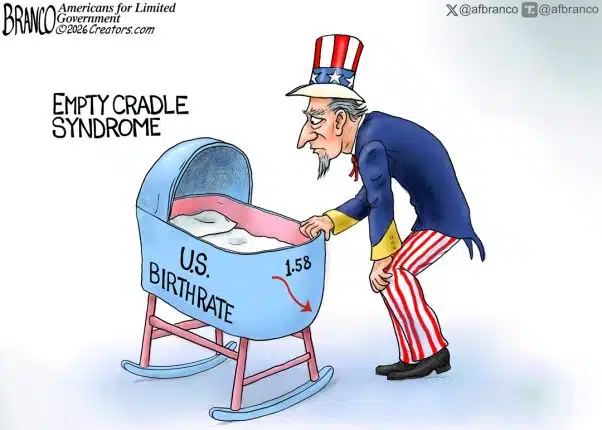By Rick Manning – It’s official.
There is a housing crisis in America. The New York Times has weighed in with their prescription for the housing woes plaguing our nation’s economy.
Not surprisingly, their solution is more government intervention, billions more on government loan modification programs that are proven failures 40 percent of the time, and believe it or not, more liability to the very banks that taxpayers bailed out just two and a half years ago.
There is no doubt that the nation’s housing market is in distress, but treating the symptoms of a large supply of houses on the market that no one wants at the price that they are being offered at by providing more of the very big government solutions that got us into this mess in the first place is insane.
The New York Times is right on one account, housing continues to flounder.
Existing home sales dropped .8 percent from last month and 12.9 percent compared with April, 2010 according to the latest report from the National Association of Realtors.
RealtyTrac is reported by The New York Times to show that banks currently own more than 872,000 homes as a result of foreclosures, almost twice as when the financial crisis began in 2007. An additional one million homes are in the process of being foreclosed upon nationally.
New home sales increased modestly on a month to month basis in April after hitting an all-time low in recorded history in February. New home sales were down an astonishing 23 percent from April of last year according to the U.S. Department of Commerce.
New housing starts declined by more than 10 percent in April which the National Association of Home Builders attributes to consumer confidence in a recent release saying, “Consumers have not yet reached a level of confidence that is strong enough to begin lifting the housing market.”
And the decline of new housing starts is a bad omen for job growth in the months ahead as new home starts serve as a predictor of how many new construction jobs will be created. Declines in April mean fewer jobs for construction workers in the summer months. This is definitely bad news for future Labor Department unemployment reports.
There can be no doubt that foreclosures and the continuing collapse of the housing market is a major economic impediment for the next couple of years, but the New York Times suggests that the federal government mandate loan modification procedures to effectively cram down loan losses on banks through reduced principle and interest payments on bad loans.
Ironically, Ed Pinto, a former top official with Fannie Mae reports that President Obama’s loan modification program that the Times models their thoughts after actually had a higher loan failure rate than private banking driven programs that preceded it.
The Obama loan modification program actually cost taxpayers $200,000 for each of the 375,000 loan modifications that were completed. Of these, Pinto estimates that ultimately only 75,000 will become successful, permanent, long-term modifications.
Yet, the New York Times bemoans that Obama’s $75 billion loan modification program was flawed only because it was not mandatory that all banks participate.
There can be no doubt that housing prices will continue to tumble over the next two to three years as foreclosures work their way through the system and buyers become tempted by the allure of homeownership at a reasonable cost.
While current homeowners feel the pinch of lower or negative equity in their homes, there never was a guarantee that home prices would go up forever, and taxpayers who pay their mortgages should not be saddled with the additional burden of propping up those who purchased a home that was beyond their means.
Lost in the hue and cry about plummeting home prices is the good news that young people for the first time in a decade have the capacity to purchase a home without a raft of artificial government incentives.
As prices continue to lower, more and more young couples will purchase their first home. A first home that was affordable not because of government buy downs, but because the price was right.
Let’s hope that the characters responsible for forcing banks through regulatory coercion to lend to people who couldn’t afford to purchase a home, don’t repeat their mistakes by attempting to prop up home prices further distorting the market and prolonging the housing crisis through the unintended consequences of their ill conceived ideas.
Rick Manning is the Director of Communications for Americans for Limited Government. You can follow Rick on Twitter at @RManning957.






